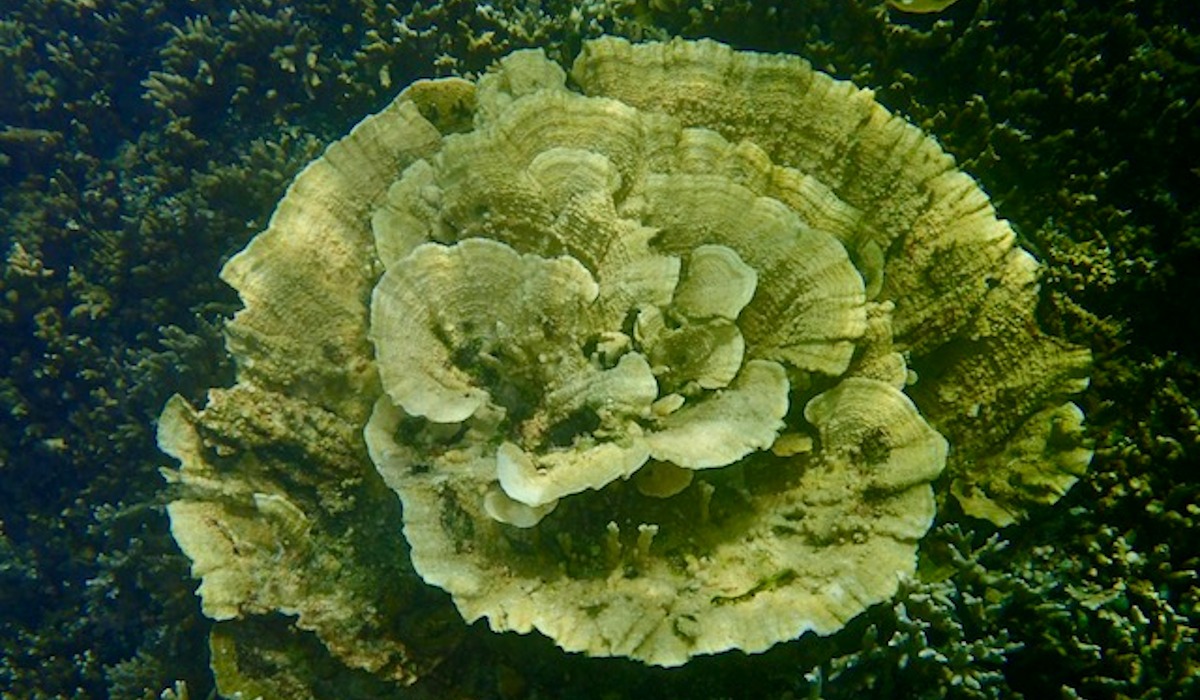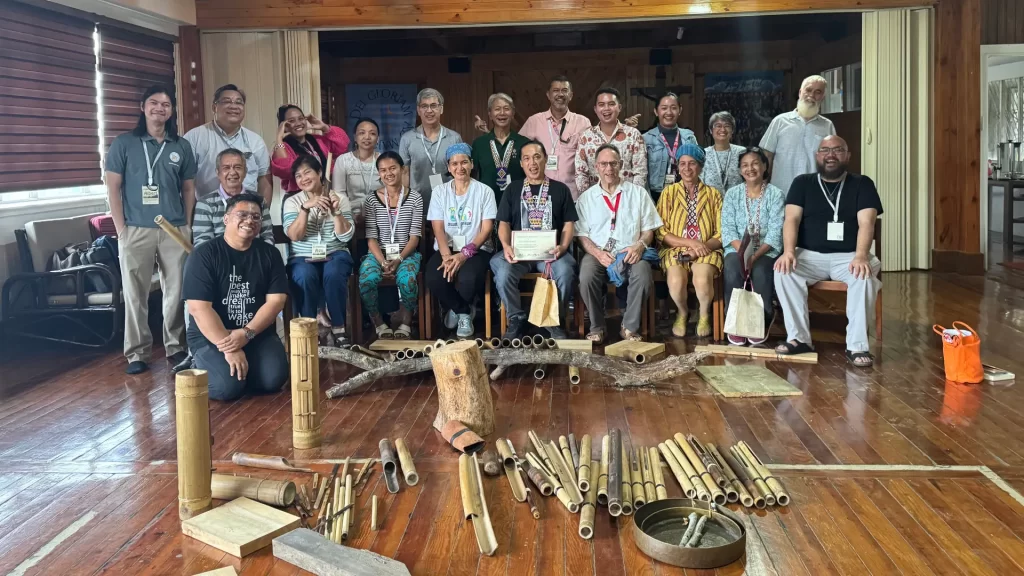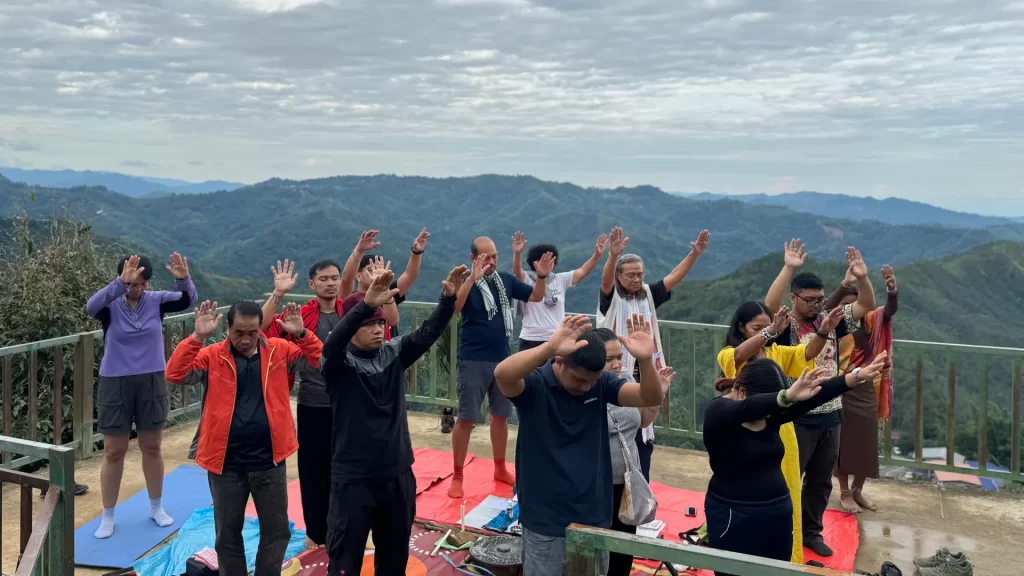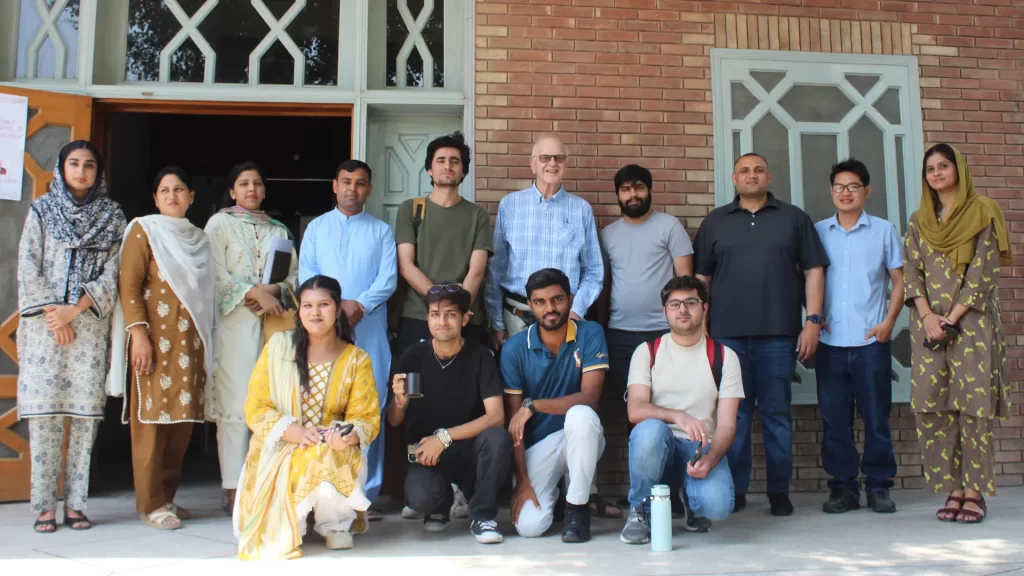Laudato sí is a Latin phrase that helps us understand what it means to love and care for our planet. As the years go by, we often forget how much our actions impact the environment around us. Especially as islanders who have spent many years living near the ocean, we are the first to experience and see the damage caused by global warming. I was also once naive and unable to understand the impact we have on our oceans until I set foot in the water after many years.
When I was a little girl, my brother, cousins, and I would often accompany our grandfather when he went fishing on the reef. I usually stayed on the boat or swam with my cousins nearby while we waited for him to return. I remember seeing so much wonderful marine life and thinking how a whole new world lay just beyond our island. I saw different types of colourful corals, fish of all sizes, and so much more. A trip to the ocean meant hours of fun and discovering new and beautiful things. It always excited me.
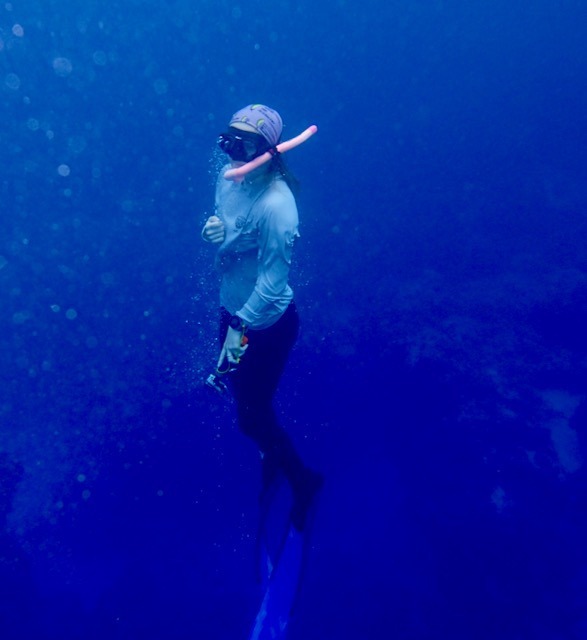
As I jumped into the water, I have to admit I was a bit disappointed. I will not lie, God’s creation of the ocean and its marine life will always be beautiful and never cease to amaze me. However, seeing all the bleached coral, the dwindling variety of fish and other life forms, and, most especially, all the trash in the ocean, made me feel as though we have failed to protect what we have been blessed with. It broke my heart to see how much had changed within about 10 or so years of my life. At that very moment, I realised that the saying, “Even the smallest actions can make a big difference,” does not always have a positive meaning. In this case, it means that every time we litter—even something as small as a candy wrapper—refuse to pick up trash or fail to make an effort to keep our environment clean, we are adding, little by little, to the damage we cause the earth.
Scholastic Dickson Tiwelfil SJ, our spiritual guide, reminded us of our role as islanders. We are known as the guardians of the Pacific Ocean. Every week, he gave us prompts relating to our time here on Earth and how much our planet has changed. One idea I took from a reflection was “Passion and take action,” which meant that if we are truly passionate about our marine ecosystem and want to do something that would actually change the direction we are going, then it is on us to take action.
There is no easy way to put it other than we are constantly changing the outcome of the fate of the world. Even though we are the cause of the damage to our oceanic ecosystem, we can also be the cure. Laudato sí helps us to be that cure. By simply opening our eyes, we can see the differences in our planet over just a decade. Perhaps it takes a programme like MIEC or someone like Mr Dickson to show us why we should care and correct our ways. As inhabitants of the Earth, we must take it upon ourselves as individuals to come together and make a difference in how we live. As they say, “Even the smallest gestures can make a big difference,” because every little action or thought we put into something can create a bigger result.

